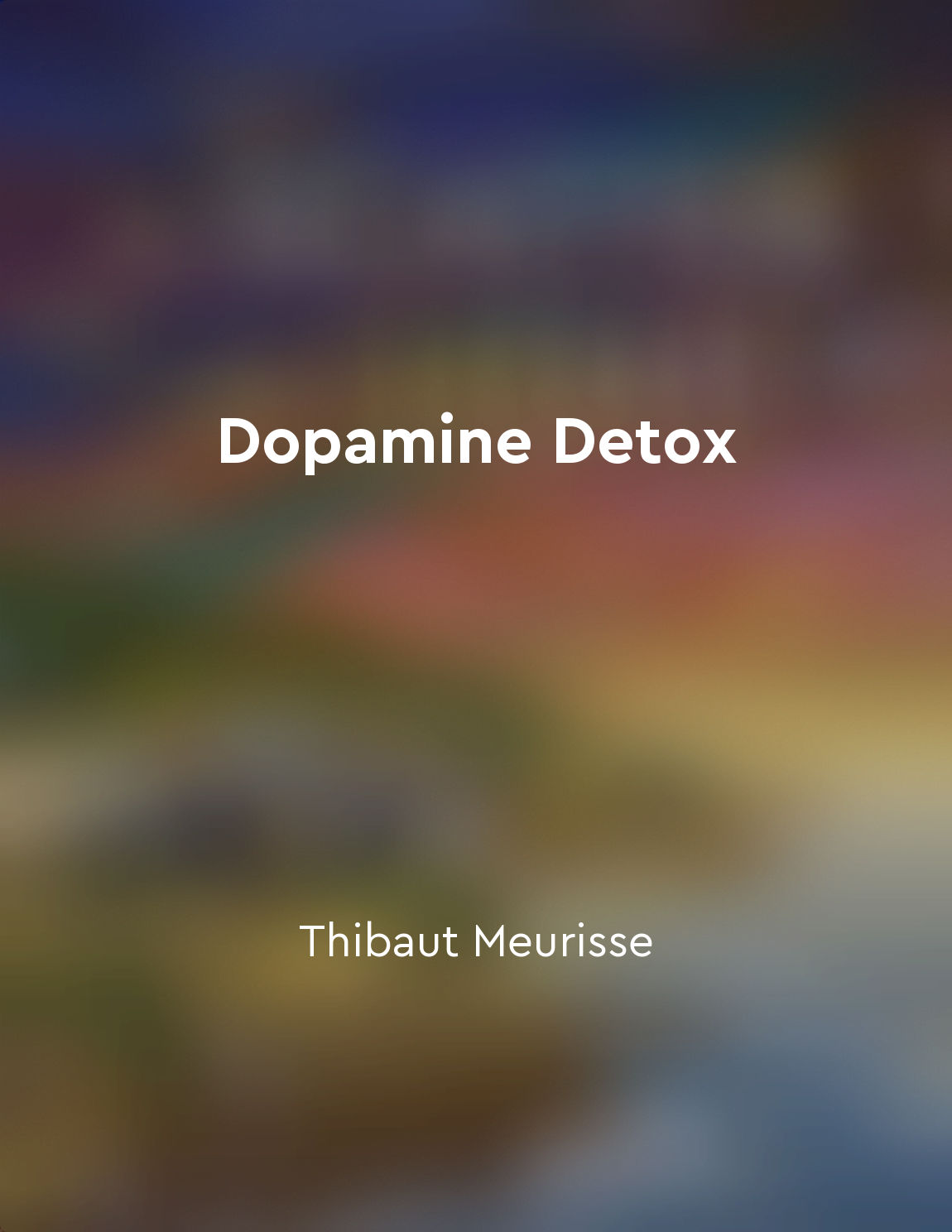Dopamine is a powerful neurotransmitter that shapes our behavior from "summary" of The Molecule of More by Daniel Z. Lieberman, MD,Michael E. Long
Dopamine is like a puppet master pulling the strings of our behavior, dictating how we think, feel, and act. It is a neurotransmitter that plays a crucial role in shaping our desires, motivations, and ultimately, our decisions. When dopamine levels in our brain are high, we are driven to seek out rewards and take risks in the pursuit of pleasure. This can manifest as a craving for food, sex, drugs, or any other pleasurable activity. The power of dopamine lies in its ability to create a sense of urgency and importance around certain stimuli. It acts as a signal that tells our brain that something good is on the horizon, compelling us to chase after it. This drive for reward can be both exhilarating and exhausting, leading us to pursue our goals with relentless determination. However, the flip side of this intense drive is that it can also lead to impulsive and risky behavior. When dopamine levels are too high, we may act without considering the consequences, placing our well-being at risk in the pursuit of immediate gratification. This can manifest as addiction, compulsive behavior, or a lack of impulse control. Understanding the role of dopamine in shaping our behavior can help us make more informed decisions about our actions and motivations. By recognizing the power of this neurotransmitter, we can better navigate the complexities of our desires and impulses, finding a balance between seeking pleasure and maintaining self-control. Dopamine may be a powerful force in our lives, but with awareness and mindfulness, we can harness its energy for our own benefit.Similar Posts
Brain energy supplements should be used cautiously
In the ever-evolving landscape of health and wellness, it is not uncommon for individuals to seek out supplements to boost thei...
Selfawareness is crucial for understanding your focus strengths and weaknesses
Understanding your focus strengths and weaknesses begins with self-awareness. This means being in tune with your thoughts, emot...
Mindful lovemaking can lead to profound spiritual experiences
Mindful lovemaking involves being fully present during intimate moments with a partner. This means focusing on sensations, emot...
Confirmation bias reinforces existing beliefs
Confirmation bias reinforces existing beliefs because our brains are wired to seek out information that confirms what we alread...
Practice patience and persistence in your journey toward optimal wellness
When embarking on your journey towards optimal wellness, it is crucial to remember the importance of patience and persistence. ...
Genetics can play a role in predisposing individuals to certain behaviors
In the realm of behavior, genetics can hold significant sway. Certain behaviors can have a genetic component, meaning that an i...

Learn to embrace discomfort as a sign of growth and progress
This concept is all about shifting your perspective on discomfort. Rather than seeing it as something negative to be avoided at...
Seeking professional help is often necessary
When dealing with a complex issue such as masturbation addiction, it is crucial to understand that seeking professional help is...
Men's brains are wired to prioritize tasks and accomplishments
In the male brain, the circuitry is primed to focus on goals and achievements. From an early age, boys are driven to compete, s...
Brain orchestrates motor acts
The brain plays a crucial role in coordinating our motor actions. This complex process involves various regions of the brain wo...

